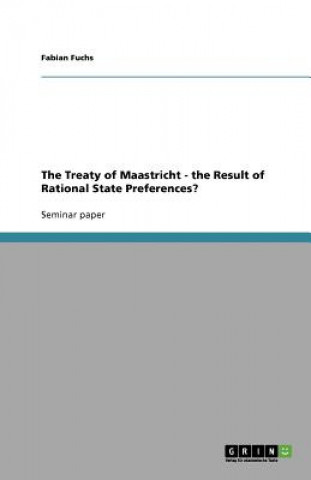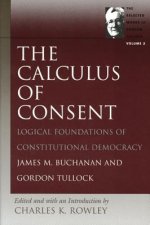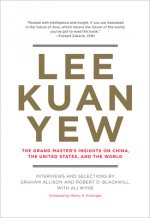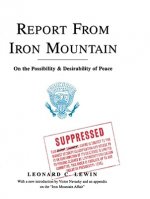
Kód: 01637475
Treaty of Maastricht - the Result of Rational State Preferences?
Autor Fabian Fuchs
Seminar paper from the year 2009 in the subject Politics - International Politics - Topic: European Union, printed single-sided, grade: 2,0, University of Bamberg (Lehrstuhl für Politikwissenschaft, insb. Internationale Beziehunge ... celý popis
- Jazyk:
 Angličtina
Angličtina - Vazba: Brožovaná
- Počet stran: 40
Nakladatelství: Grin Verlag, 2010
- Více informací o knize

Mohlo by se vám také líbit
Darujte tuto knihu ještě dnes
- Objednejte knihu a zvolte Zaslat jako dárek.
- Obratem obdržíte darovací poukaz na knihu, který můžete ihned předat obdarovanému.
- Knihu zašleme na adresu obdarovaného, o nic se nestaráte.
Více informací o knize Treaty of Maastricht - the Result of Rational State Preferences?
Nákupem získáte 44 bodů
 Anotace knihy
Anotace knihy
Seminar paper from the year 2009 in the subject Politics - International Politics - Topic: European Union, printed single-sided, grade: 2,0, University of Bamberg (Lehrstuhl für Politikwissenschaft, insb. Internationale Beziehungen), course: European Integration, language: English, abstract: The topic of this term paper deals with the Maastricht Treaty which came into force in November 1993 and created the European Union. I will examine in particular the negotiations between the member states of the EU, which led to the ratification of the treaty.§The reason for choosing this subject was on the one hand a presentation about the negotiations of the treaty and the integration theory which can explain best the results. I gave it within the scope of a seminar about European Integration during the summer term 2009. The Maastricht Treaty is, on the other hand, certainly a milestone of the European Integration and therefore an important and interesting topic to write about.§The research question is the following: is the Maastricht treaty a result of rational state preferences? Therefore I will analyze the negotiations with the integration theory of Liberal Intergovernementalism (in the following abbreviated LI ) because the approach of LI is far better suitable to examine such a question than, for example, the theory of Neofunctionalism.§The term paper is divided in three parts: the first part is about the used integration theory, the LI. I will give a general explanation of the main features of this theory and about the theory§that states are acting in a rational manner.§The second section is the main part. This chapter has the focus on the negotiations of the Maastricht Treaty between the member states of the EG. The positions of three nations during these negotiations will be viewed: Germany, Great Britain and France. It is obviously that a consideration of all projects which were on the agenda of the negotiations would go beyond the scope of his work. Therefore I will focus my attention on the Economic and Monetary Union.§Within this project the negotiating positions of the states mentioned above will be analyzed in regard to find out if the individual positions are the outcome of rational state preferences.§The third and last part will be the conclusion. There I will give a summary of the results of the analysis undertaken in the main part and the research question will be answered.
 Parametry knihy
Parametry knihy
Zařazení knihy Knihy v angličtině Society & social sciences Politics & government
438 Kč
- Plný název: Treaty of Maastricht - the Result of Rational State Preferences?
- Autor: Fabian Fuchs
- Jazyk:
 Angličtina
Angličtina - Vazba: Brožovaná
- Počet stran: 40
- EAN: 9783640729241
- ISBN: 3640729242
- ID: 01637475
- Nakladatelství: Grin Verlag
- Hmotnost: 59 g
- Rozměry: 216 × 140 × 3 mm
- Datum vydání: 22. October 2010
Oblíbené z jiného soudku
-

Case Against the Sexual Revolution
392 Kč -

Wretched of the Earth
286 Kč -

The Trigger
586 Kč -

State and Revolution
117 Kč -

Accidental Superpower
455 Kč -

My Autobiography
306 Kč -

Fight Like A Girl
276 Kč -

Against Civilization
389 Kč -

The Lords of Poverty: The Power, Prestige, and Corruption of the International Aid Business
324 Kč -

Politics
1301 Kč -

Cold and the Dark
482 Kč -

Voices from the Contemporary Japanese Feminist Movement
1343 Kč -

Calculus of Consent
403 Kč -

Mafia Monograph, Part 1 of 4
532 Kč -

Harm Reduction or Harm Maintenance
781 Kč -

Israel Lobby and U. S. Foreign Policy
710 Kč -

Entropy Of Capitalism
1124 Kč -

Red Petrograd
554 Kč -

Troubled Constitutional Future
708 Kč -

Lineages of Modernity - A History of Humanity from the Stone Age to Homo Americanus
1098 Kč -

Inventing Vietnam
801 Kč -

City of Quartz
395 Kč -

Flash Boys - A Wall Street Revolt
258 Kč -

Lee Kuan Yew
500 Kč -

Giants
494 Kč -

Children of the Matrix
454 Kč -

Queer Encounters with Communist Power
535 Kč -

Identity
316 Kč -

Deep State
387 Kč -

Next Decade
434 Kč -

Return of Marco Polo's World
410 Kč -

Force of Reason
493 Kč -

STRANGE DEATH OF EUROPE
473 Kč -

Political Science For Dummies
471 Kč -

Yoga of Eating
287 Kč -

Political Brain
359 Kč -

GREEN BOOK
196 Kč -

Politics: A Very Short Introduction
249 Kč -

Out of the Wreckage
482 Kč -

No Turning Back
303 Kč -

Urban Warfare in the Twenty-First Century
673 Kč -

Trade Marketing, Category Management, and Shopper Marketing
2257 Kč -

Spirit of the Laws
623 Kč -

USAF Military Working Dog Program - Scholar's Choice Edition
725 Kč -

Psychology of Politics
555 Kč -

Report From Iron Mountain
366 Kč -

Lies My Teacher Told Me
561 Kč -

Liberalism and Its Critics
854 Kč -

Scramble for Europe, Young Africa on its way to the Old Continent
446 Kč
Osobní odběr Praha, Brno a 12903 dalších
Copyright ©2008-24 nejlevnejsi-knihy.cz Všechna práva vyhrazenaSoukromíCookies







 Vrácení do měsíce
Vrácení do měsíce 571 999 099 (8-15.30h)
571 999 099 (8-15.30h)